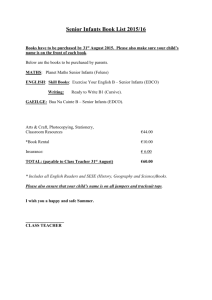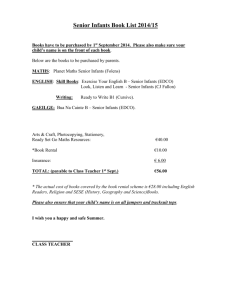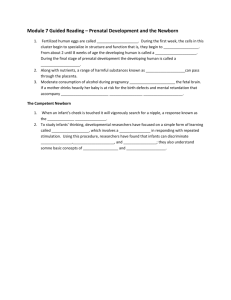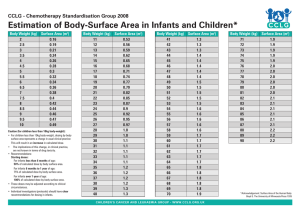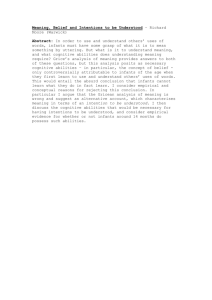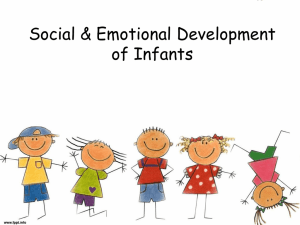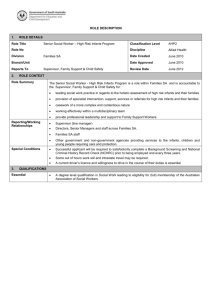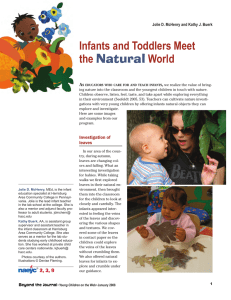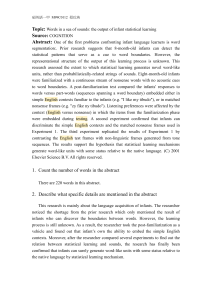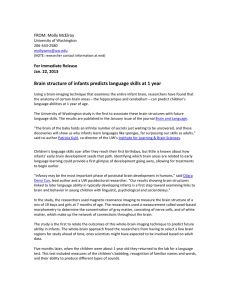Core Knowledge Theories: Infant Cognition & VOE Method
advertisement
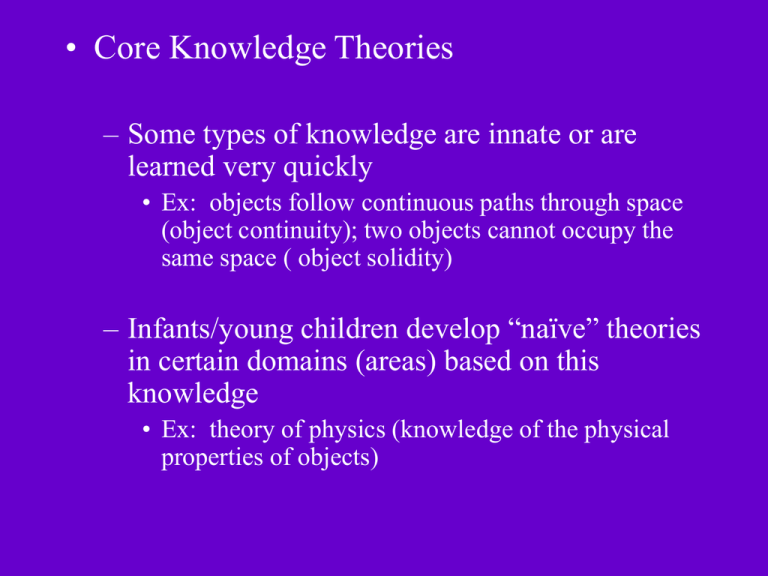
• Core Knowledge Theories – Some types of knowledge are innate or are learned very quickly • Ex: objects follow continuous paths through space (object continuity); two objects cannot occupy the same space ( object solidity) – Infants/young children develop “naïve” theories in certain domains (areas) based on this knowledge • Ex: theory of physics (knowledge of the physical properties of objects) – Domains in which infants/young children have “core knowledge” are adaptive for survival from an evolutionary perspective • Exs: knowledge of people, knowledge of living things, knowledge of objects • Violation of Expectation Method – Based on infants’ preference for novel stimuli – Habituate infants to a “possible” physical event • Habituation: Decrease in response due to repeated presentation of a stimulus – Present a “possible” and “impossible” event • Measure infants’ looking time to each event – If infants look longer at “impossible” event, assumed they have an understanding of the concept (e.g., object solidity, object continuity) – Based on findings using the VOE method, core knowledge theorists argue that some types of object knowledge are innate or emerge very early without direct experience with objects • Very different than Piaget’s view! • But violation-of-expectation method is controversial: – Does longer looking time to an “impossible” event indicate full understanding of a concept? OR – Does it reflect a preference for novel visual stimuli? • “Perception and knowing are not the same thing. . . A person can regard an event as odd without knowing why” (Haith, 1998)

